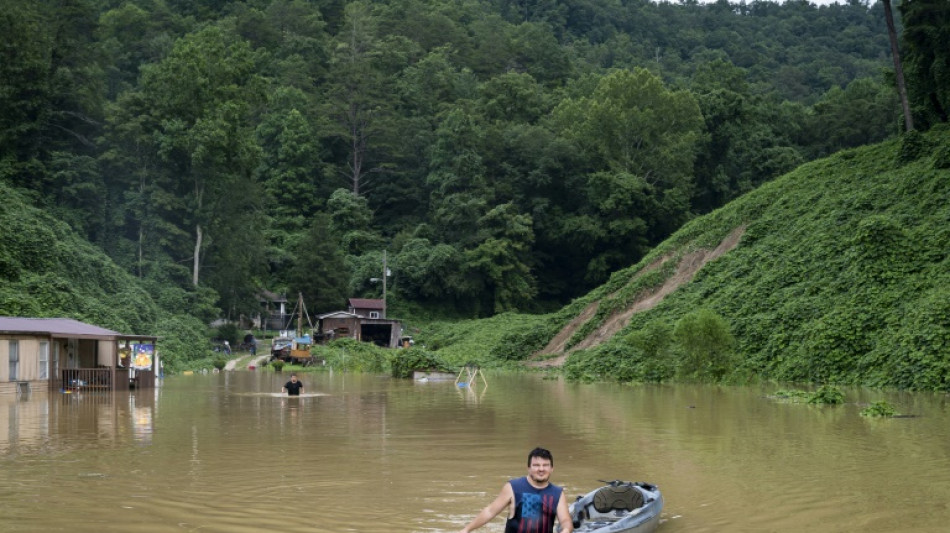
-
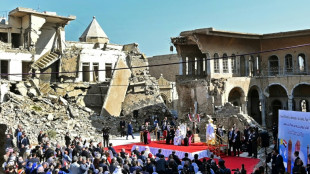 Iraq's top Shiite cleric says Pope Francis sought peace
Iraq's top Shiite cleric says Pope Francis sought peace
-
Mourners flock to world's churches to grieve Pope Francis
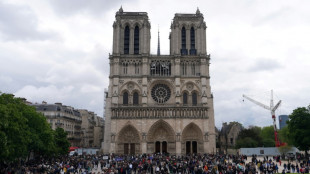
-
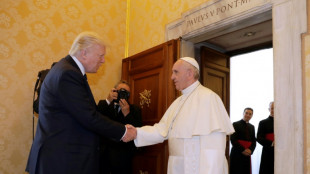 Trump says Pope Francis 'loved the world'
Trump says Pope Francis 'loved the world'
-
Sri Lanka recalls Pope Francis' compassion on Easter bombing anniversary
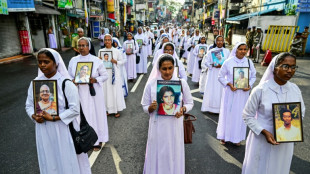
-
 Pope Francis inspired IOC president Bach to create refugee team
Pope Francis inspired IOC president Bach to create refugee team
-
Alexander-Arnold will be remembered for 'good things' at Liverpool: Van Dijk

-
 US VP Vance meets Indian PM Modi for tough talks on trade
US VP Vance meets Indian PM Modi for tough talks on trade
-
Pentagon chief dismisses reports he shared military info with wife

-
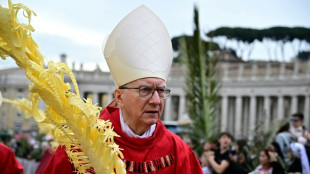 15 potential successors to Pope Francis
15 potential successors to Pope Francis
-
The papabili - 15 potential successors to Pope Francis
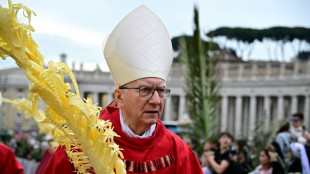
-
 Zhao sets up all-China clash after beating 2024 world snooker finalist Jones
Zhao sets up all-China clash after beating 2024 world snooker finalist Jones
-
Ostapenko stuns Sabalenka to win Stuttgart title

-
 Argentina mourns loss of papal son
Argentina mourns loss of papal son
-
African leaders praise Pope Francis's 'legacy of compassion'
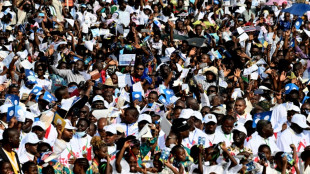
-
 Mehidy's five wickets help Bangladesh fight back in first Zimbabwe Test
Mehidy's five wickets help Bangladesh fight back in first Zimbabwe Test
-
'The voice of god': Filipinos wrestle with death of Pope Francis

-
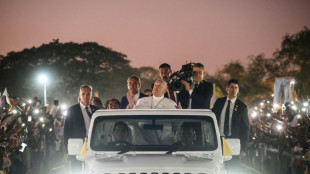 Prayers, disbelief in East Timor after Pope Francis death
Prayers, disbelief in East Timor after Pope Francis death
-
Real Madrid hold minute's silence as La Liga mourns Pope Francis

-
 World leaders pay tribute to Pope Francis, dead at 88
World leaders pay tribute to Pope Francis, dead at 88
-
World leaders react to the death of Pope Francis
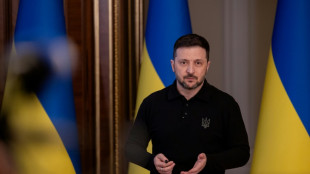
-
 Zimbabwe lead first Test despite Bangladesh spinner Mehidy's five wickets
Zimbabwe lead first Test despite Bangladesh spinner Mehidy's five wickets
-
Vatican postpones sainthood for 'God's influencer' after pope's death

-
 Pope's death prompts CONI to call for sporting postponements, minute's silence
Pope's death prompts CONI to call for sporting postponements, minute's silence
-
Stunned and sad, faithful gather at St Peter's to remember Francis
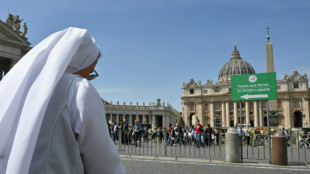
-
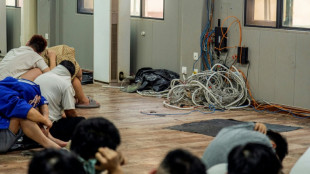 Asian scam centre crime gangs expanding worldwide: UN
Asian scam centre crime gangs expanding worldwide: UN
-
Davos meet founder Klaus Schwab steps down from WEF board
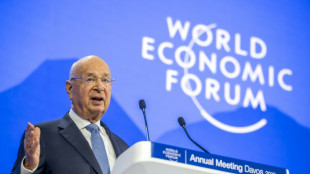
-
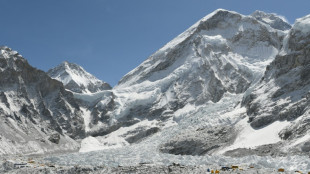 Himalayan snow at 23-year low, threatening 2 billion people: report
Himalayan snow at 23-year low, threatening 2 billion people: report
-
The beautiful game: Pope Francis's passion for football

-
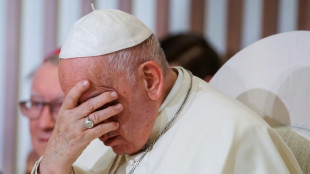 Clerical sex abuse: Pope Francis's thorniest challenge
Clerical sex abuse: Pope Francis's thorniest challenge
-
Pope Francis's delicate ties with politics in Argentina
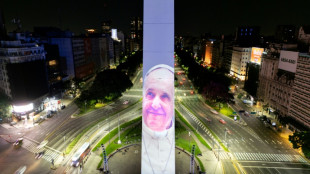
-
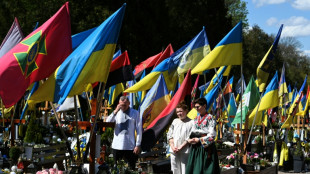 Russia resumes attacks on Ukraine after Easter truce
Russia resumes attacks on Ukraine after Easter truce
-
Pope Francis has died aged 88

-
 Gaza civil defence describes medic killings as 'summary executions'
Gaza civil defence describes medic killings as 'summary executions'
-
Francis: radical leader who broke the papal mould
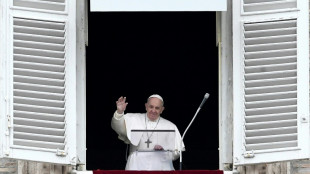
-
 Oscar stars, Max keeps mum, Sainz alive - Saudi GP talking points
Oscar stars, Max keeps mum, Sainz alive - Saudi GP talking points
-
Iyer, Kishan win back India contracts as Pant's deal upgraded

-
 Vance lands in India for tough talks on trade
Vance lands in India for tough talks on trade
-
Inside South Africa's wildlife CSI school helping to catch poachers
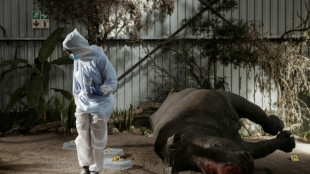
-
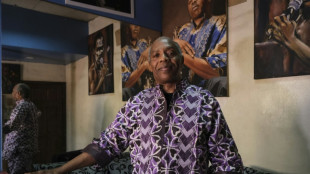 Nigerian Afrobeat legend Femi Kuti takes a look inward
Nigerian Afrobeat legend Femi Kuti takes a look inward
-
Kim Kardashian: From sex tape to Oval Office via TV and Instagram

-
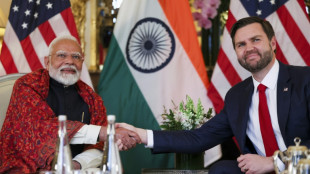 Vance in India for tough talks on trade
Vance in India for tough talks on trade
-
Thunder crush Grizzlies as Celtics, Cavs and Warriors win

-
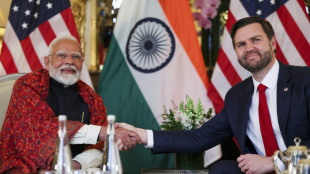 Vance heads to India for tough talks on trade
Vance heads to India for tough talks on trade
-
China slams 'appeasement' of US as nations rush to secure trade deals

-
 'Grandpa robbers' go on trial for Kardashian heist in Paris
'Grandpa robbers' go on trial for Kardashian heist in Paris
-
Swede Lindblad gets first win in just third LPGA start

-
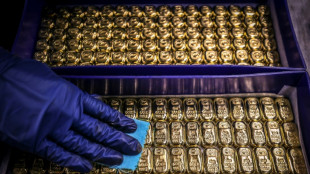 Gold hits record, dollar drops as tariff fears dampen sentiment
Gold hits record, dollar drops as tariff fears dampen sentiment
-
As Dalai Lama approaches 90, Tibetans weigh future

-
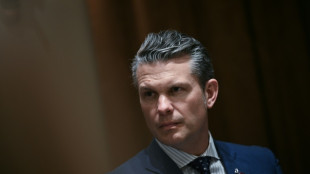 US defense chief shared sensitive information in second Signal chat: US media
US defense chief shared sensitive information in second Signal chat: US media
-
Swede Lingblad gets first win in just third LPGA start


Dust to downpour: US weather whiplash shows climate change
A series of "once-in-a-millennium" rainstorms have lashed the United States in recent weeks, flooding areas baked dry by long-term droughts, as human-caused climate change brings weather whiplash.
And scientists warn that global warming means once-rare events are already much more likely, upending the models they have long used to predict possible disasters -- with worse to come.
At least 40 people have been killed in the last month by storms in Kentucky, Illinois, Texas and Missouri, inundating areas that in some cases had seen little to no rain for months.
Up to 12 inches (30 centimeters) fell in one of these storms -- the kind of downpour that statistical models say should only happen once in a thousand years.
"This is 'weather whiplash'," tweeted Peter Gleick, co-founder of the Pacific Institute, a non-governmental organization that works on water issues around the world.
It is "caused by an intensification of the global hydrological cycle & how it distributes water around the planet, influenced by human-caused climate change."
The warnings scientists have been sounding for decades about the effects of unchecked fossil fuel use are suddenly coming into focus for millions of people.
A warming planet is not a benign place in a far-off future where it is always a bit sunnier; it's a place of wild swings, where the wets are wetter and the dries are drier. And it's now.
"The commonality between these and other extreme rainfall events is you need just the right set of ingredients to come together," said David Novak, director of the Weather Prediction Center at the National Weather Service.
"You need moisture, you need instability in the atmosphere. And you need some sort of... feature to kind of ignite the storms."
While a rainstorm in Texas or Kentucky or Illinois is not unheard of at this time of year, these events were supercharged by an oversupply of atmospheric moisture -- a direct consequence of the planet being hotter.
"There's scientific consensus absolutely on the fact that warmer air can hold more moisture," Novak told AFP.
"There is more moisture available... for these fronts to tap, and so you can get these really intense rainfall events."
The science is uncontroversial -- if a little complicated for those not familiar with linear equations and difficult-to-pronounce chemistry.
The Clausius–Clapeyron equation shows that for every one degree celsius (1.8 F) the air warms, it can hold seven percent more moisture.
That's what makes hot, equatorial places noticeably more humid than cooler climes, says Novak.
And it's also what's messing with the statistics and making the one-in-1,000-year storms -- like the five that hit the US in the last month -- a lot more common.
Storms like these had a 0.1 percent chance of occurring in any given year in pre-industrial conditions, meaning that on average they would happen once every 1,000 years.
But their percentage chance of happening in a warmer environment that holds more moisture rises dramatically.
In other words, the recurrence interval -- the periods expected between these once relatively rare events -- is shrinking.
"Something that really wasn't very likely at all, just a little bit more moisture can make that quite a bit more likely," said Novak.
O.Bulka--BTB




